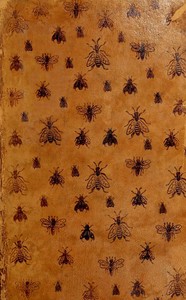| Summary |
"La vie des abeilles" by Maurice Maeterlinck is a contemplative work that combines elements of nature writing and philosophical exploration, likely written in the late 19th century. The text discusses the world of bees, avoiding technical jargon, and instead delves into the intricacies of their society, behaviors, and the natural laws that govern them. Through Maeterlinck's lens, readers are invited to reflect on the beauty, complexity, and mystery of bee life. The opening of the book establishes Maeterlinck's intention to provide a vivid narrative that evokes the marvels of bee existence rather than a scientific treatise on beekeeping. He emphasizes his desire to share observations and insights gained from years of experience with bees, while asserting that much remains unknown about their lives. The text unfolds as a philosophical inquiry into the lives of bees, presenting them as both individuals and parts of a greater community, exploring themes of duty, sacrifice, and the enigmatic "spirit of the hive" that guides them. The first chapters set the stage for a deeper exploration of the bees' annual cycle and the interconnectedness of their existence to the larger world, inviting readers to ponder the lessons they embody about nature and life itself. (This is an automatically generated summary.)
|

